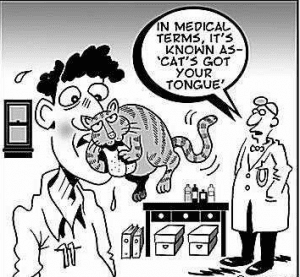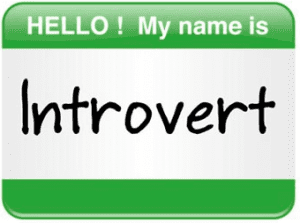 Welcome to part six of this nine-part series on dangerous mindsets that can impact situational awareness. I appreciate all of the very kind feedback I have been receiving on this series on Facebook, Twitter and by email. Your positive feedback energizes me so much. Thank you.
Welcome to part six of this nine-part series on dangerous mindsets that can impact situational awareness. I appreciate all of the very kind feedback I have been receiving on this series on Facebook, Twitter and by email. Your positive feedback energizes me so much. Thank you.
In this segment we’re going to discuss the Silent member. This member, for whatever reason, will not speak up even if something is going horribly wrong. This can have devastating consequences on team safety because the Silent member may see something very important for the safety of personnel operating at the scene yet never say a word.
Quickly, let’s review the dangerous mindsets list that will be covered in this series:
- The starter (a.k.a., the new member)
- The subordinate (a.k.a., the loyal follower)
- The specialist (a.k.a., the expert or ‘know-it-all’)
- The superior (a.k.a., the BOSS!)
- The stubborn (a.k.a., the defiant)
- The silent (a.k.a., the shy one)
- The superman/Superwoman (a.k.a., the unstoppable)
- The slacker (a.k.a., the complacent)
- The synergist (a.k.a., the like-minded)
Cat got your tongue?
 Why wouldn’t a member speak up and share critical information that could save someone’s life? There are many possible reasons but I’ll explore just a few. First, the member could be afraid that speaking up will be perceived as being a trouble maker or a dissident or disobedient to authority.
Why wouldn’t a member speak up and share critical information that could save someone’s life? There are many possible reasons but I’ll explore just a few. First, the member could be afraid that speaking up will be perceived as being a trouble maker or a dissident or disobedient to authority.
Some members defy authority. Other members fear authority. Those who defy are often very outspoken, perhaps even obnoxious when it comes to pointing out everything that’s wrong with the decision making of superiors. Conversely though, the Silent is soft-spoken and sometimes silent to the point that nothing will be said, even if superiors are making mistakes that could result in injuries or deaths.
We have well-established, through dozens of articles, that situational awareness is vulnerable under stress even among the most talented of supervisors. A subordinate who fears speaking up has a dangerous mindset. I once suffered a near-miss at a fire scene because I did not speak up when I saw something going wrong. I know, those who know me would say, I’m anything but the Silent one. But such was not always the case.
Early in my career I feared authority and those who had power over me. The thought of speaking up mortified me. When I had an opportunity at a fire scene to speak up and point out something that was going wrong, I didn’t. As a result, several of my colleagues were injured (I was not). I’m not proud that happened, but at the time, I was too afraid and, quite frankly, I didn’t know how to speak up.
Introvert
 Some team members are introverts. There are some misconceptions about introverts including they are shy and quiet. Some are, but not all are. There is something different going on inside the brain of an introvert. The frontal lobes of the brain of an introvert are stimulated by solidarity and become very active. Introverts can be excellent problem solvers and complex thinkers. This comes from introspection.
Some team members are introverts. There are some misconceptions about introverts including they are shy and quiet. Some are, but not all are. There is something different going on inside the brain of an introvert. The frontal lobes of the brain of an introvert are stimulated by solidarity and become very active. Introverts can be excellent problem solvers and complex thinkers. This comes from introspection.
Extroverts, on the other hand, have more activity in the sensory areas of the brain and, therefore, seek external stimulation through social activities. There’s nothing wrong with either trait. All we need to know is they are different and it is a function of their brain.
Introverts tend to keep their energy and enthusiasm to themselves. They may also, in turn, keep concerns to themselves and this can contribute to dangerous outcomes. Introverts tend to reflect before speaking up or reacting to a situation. Again, in a dynamically changing environment, the delay can be dangerous. Some introverts prefer written communications over verbal communications. Unfortunately, emergency scenes don’t lend themselves well to written communications. Finally, introverts can repeatedly rehearse what they want to say in their minds which can lead them to believe they already said something when in reality they didn’t. This can also cause a problem on an emergency scene if the introvert believes an update or progress report was transmitted when, in fact, it wasn’t.
Upbringing
 Some are raised in a household where it is considered respectful to only speak when spoken to. Thus, they have learned to keep their mouths shut. Honestly, I’ve known a few people who I wish were raised in such a household because they simply don’t know how to keep their mouths shut… ever! But that’s a topic for another article. A person who was raised in an environment where they were ridiculed or chastised for speaking up may develop a habit of keeping their mouth shut. They’re not shy. They’re just being respectful or they’re afraid to speak up. Either way, this can be dangerous.
Some are raised in a household where it is considered respectful to only speak when spoken to. Thus, they have learned to keep their mouths shut. Honestly, I’ve known a few people who I wish were raised in such a household because they simply don’t know how to keep their mouths shut… ever! But that’s a topic for another article. A person who was raised in an environment where they were ridiculed or chastised for speaking up may develop a habit of keeping their mouth shut. They’re not shy. They’re just being respectful or they’re afraid to speak up. Either way, this can be dangerous.
Lack of confidence or self-esteem
 Some responders may lack the confidence or self-esteem to speak up. If they are new on the job or if they feel under trained or under qualified, they may not speak up because they don’t have the self confidence to believe their contributions will be valuable to the situation. Likewise, someone whose self-esteem is low may not see themselves as worthy of being a contributor. This condition may have been promulgated over years of being beat down by family members, friends, bosses, or teachers. This person sees the consequence of speaking up as too great. Therefore, they don’t speak up.
Some responders may lack the confidence or self-esteem to speak up. If they are new on the job or if they feel under trained or under qualified, they may not speak up because they don’t have the self confidence to believe their contributions will be valuable to the situation. Likewise, someone whose self-esteem is low may not see themselves as worthy of being a contributor. This condition may have been promulgated over years of being beat down by family members, friends, bosses, or teachers. This person sees the consequence of speaking up as too great. Therefore, they don’t speak up.
Dr. Gasaway’s Advice
 Supervisors and co-workers with healthy egos and strong self-esteem want other team members to speak up if something is going wrong or if someone sees something that can be harmful. Leaders cannot, however, assume that underlings know that it’s safe and appreciated when they speak up. This is something the leader must communicate directly (no assumptions) and, when someone does display the courage to speak up, the leader must not admonish them or they will shut down.
Supervisors and co-workers with healthy egos and strong self-esteem want other team members to speak up if something is going wrong or if someone sees something that can be harmful. Leaders cannot, however, assume that underlings know that it’s safe and appreciated when they speak up. This is something the leader must communicate directly (no assumptions) and, when someone does display the courage to speak up, the leader must not admonish them or they will shut down.
This relationship is likely to be developed and maintained (or destroyed) in the non-emergency interactions. If a positive environment is fostered in daily interactions and workers are encouraged to freely share ideas and dissent when they feel things are going in a bad direction, this will transition over to the emergency scene as well. For a worker to speak up, they must not feel threatened and they must feel appreciated.
If your silent member is an introvert, learn to ask open ended questions and be patient for responses. If there are a few seconds of awkward silence, avoid filling it in with your own answers. Be patient. Introverts need to reflect and rehearse their responses. Understand the pace may be a little slower than what you want or expect.
Action Items
 1. Discuss ways to involve Silent members in daily interaction and non-emergency decisions.
1. Discuss ways to involve Silent members in daily interaction and non-emergency decisions.
2. Discuss with Silent members the best way to approach a supervisor when they believe things are not going well and need to share critical information.
3. Discuss how to temper input so Silent members are able to participate and be involved. This may include discussing strategies about how to tone down extremely vocal members. Simply because a member is loud, it doesn’t make them right.
_____________________________________________________

If you are interested in taking your understanding of situational awareness and high-risk decision making to a higher level, check out the Situational Awareness Matters Online Academy.
CLICK HERE for details, enrollment options and pricing.
__________________________________
Share your comments on this article in the “Leave a Reply” box below. If you want to send me incident pictures, videos or have an idea you’d like me to research and write about, contact me. I really enjoy getting feedback and supportive messages from fellow first responders. It gives me the energy to work harder for you.
Thanks,

Email: Support@RichGasaway.com
Phone: 612-548-4424
SAMatters Online Academy
Facebook Fan Page: www.facebook.com/SAMatters
Twitter: @SAMatters
LinkedIn: Rich Gasaway
Instagram: sa_matters
YouTube: SAMattersTV
iTunes: SAMatters Radio

As always, well said Chief.
A fundamental consistency in my approach to new recruits in the early days of training has alway a been to ensure they knew their voice was critical to hear from from this moment on, that situational awareness draws from many eyes and voices and, that they then had to make a solemn promise to contribute to a culture of communication from this moment on.